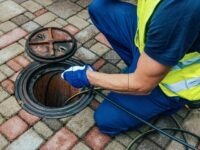Is Your Industrial Paint Booth Quietly Affecting Employee Health?

The sounds of spraying, the scent of fresh paint, the steady rhythm of production—it all seems normal inside a paint booth. But what if the booth that helps finish the job is slowly affecting the people who run it? Hidden issues in an industrial paint booth don’t always make noise, but they can quietly take a toll on worker health over time.
Subpar Air Filtration Allowing Undetected Contaminants Exposure
Even if the booth looks clean, the air might not be. Inside an industrial paint booth, tiny paint particles and chemical fumes float in the air during spraying. If the filters aren’t doing their job, these particles don’t stay in the booth—they end up in the air workers breathe. Over time, this slow exposure to contaminants can lead to headaches, skin irritation, and even more serious health problems.
The filters in a paint booth need regular checking and replacement. Dirty or clogged filters don’t just make the booth work harder—they let harmful stuff slip through. Workers might not notice right away, but the effects build up. If employees leave the booth feeling tired, dizzy, or with sore throats, it might be the air itself that’s to blame.
Inadequate Booth Ventilation Causing Subtle Respiratory Risks
Proper ventilation keeps the air moving. Without it, fumes hang around too long inside the booth. Paint sprays release volatile organic compounds (VOCs) that can irritate the lungs when inhaled regularly. In booths without enough airflow, workers can breathe in these fumes day after day, even if the room doesn’t seem smoky or stuffy.
Ventilation systems should pull fumes out fast and replace them with fresh air. A well-designed industrial paint booth makes this process seamless. But when the system is too weak—or just not maintained—those chemicals linger. Long-term exposure can trigger asthma, respiratory inflammation, and other breathing issues that workers might not connect to the booth right away.
Insufficient Noise Control Gradually Impacting Worker Hearing
It’s easy to ignore a bit of background noise, especially when machines are always running. But industrial paint booths can get loud, especially when fans, air compressors, and sprayers are going all at once. If sound levels stay high without protection or noise control, it starts to wear down a person’s hearing slowly and quietly.
Unlike a sudden loud bang, this kind of damage takes time. Workers may not notice until voices start sounding muffled or ringing in the ears becomes more common. A properly insulated and sound-managed booth helps limit that exposure. That’s why booth design isn’t just about paint—it’s also about keeping the work environment safe for senses we often take for granted.
Improper Booth Lighting Contributing to Chronic Worker Fatigue
Lighting matters more than people think. Dim or uneven lighting in an industrial paint booth forces workers to strain their eyes all day. Over time, that strain adds up—leading to eye fatigue, headaches, and even mood shifts. It’s not just about visibility; it’s about how much energy workers burn trying to see clearly.
Bright, color-accurate lights make it easier to spot imperfections in a paint job while also keeping workers more alert. Bad lighting doesn’t just hurt productivity—it hurts people. If painters leave work feeling unusually tired or irritated, the lights in the booth might be to blame. And fixing lighting is often one of the easiest ways to improve comfort and quality at once.
Deficient Paint Booth Insulation Leading to Stressful Work Conditions
Temperature inside a paint booth affects more than just how paint cures. Without proper insulation, the booth can get too hot in the summer and freezing in the winter. Extreme temps make it harder for workers to focus, stay calm, or even stay healthy. Long shifts in uncomfortable conditions lead to more mistakes and more stress.
Here’s what poor insulation does:
- Causes uneven temperatures inside the booth
- Increases strain on HVAC systems
- Makes workers sweat or shiver all day
In high-performance industrial paint booths, insulation isn’t just a bonus—it’s part of what keeps the crew comfortable and the work consistent.
Hidden Chemical Residue Accumulation Affecting Long-term Health
Paint dust and chemical overspray don’t always vanish. Over time, they settle in corners, on floors, and behind equipment if not cleaned properly. That hidden residue becomes part of the air and work surface, sticking to clothes and skin and finding its way into lungs.
Regular deep cleaning is key, but the booth design also matters. A well-built industrial paint booth is easy to maintain, with smooth surfaces and accessible areas that make residue less likely to hide. If workers frequently report dry skin, frequent coughing, or odd odors, it might be time to check what’s building up under the radar. Clean booths aren’t just for quality finishes—they’re for health, too.






